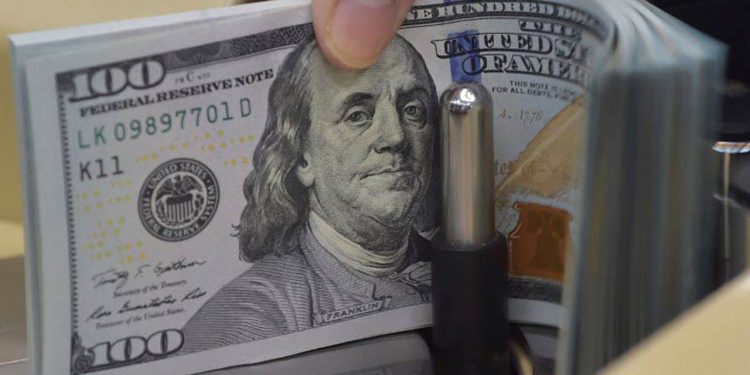The exchange rate for customs duty collection in Nigeria has decreased to N1,637 per US dollar, marking a slight improvement from last week’s rate of N1,666 per dollar. This adjustment reflects the fluctuations in Nigeria’s foreign exchange market and the broader economic environment.
According to data from the customs exchange rate portal, the rate for collecting duties has seen a steady rise throughout September, starting at N1,564 per dollar at the beginning of the month. This steady climb in the exchange rate for duties is happening in the context of the Central Bank of Nigeria’s (CBN) interventions to stabilize the naira amidst ongoing depreciation concerns.
CBN Interventions and Sale of Forex to BDCs
The recent dip in the exchange rate comes after the CBN approved the sale of $20,000 to each Bureau De Change (BDC) operator at an exchange rate of N1,590 per dollar. This move, designed to support liquidity and stabilize the foreign exchange market, mandates BDC operators to sell the foreign currency to customers with no more than a 1% markup, promoting transparency and discouraging excessive profiteering.
For BDCs to participate in this sale, they must provide proof of payment and deposit the required naira into their CBN accounts at designated branches.
Impact on Naira’s Value
The CBN’s forex sale has led to a slight appreciation of the naira in the official market. On September 26, 2024, the naira strengthened by about 5.1%, closing at N1,576.10 in the Investors and Exporters (I&E) window, a marked improvement from the previous day’s N1,667.52. This appreciation came as market turnover surged, jumping from $100.47 million to $334.05 million in a single day.
During the trading session, the naira fluctuated between a high of N1,699.00 and a low of N1,567.00, eventually closing stronger. This gain underscores the naira’s attempt to recover despite challenges.
Naira’s Ongoing Struggle
Despite this recent appreciation, the naira has faced significant depreciation pressures throughout the year. Since surpassing the N1,600 mark in July, it has fluctuated within the N1,500 to N1,600 range, reflecting ongoing market volatility and rising inflation. Overall, the naira has weakened by approximately 75% in 2024, largely driven by inflationary pressures and high demand for foreign exchange.
However, there has been a modest increase in Nigeria’s external reserves, which rose from $36.305 billion at the end of August to $36.730 billion by mid-September, offering some hope for future stability in the country’s foreign exchange markets.
This continued intervention by the CBN reflects the efforts to restore confidence in the naira and manage the pressures on the nation’s economy.










